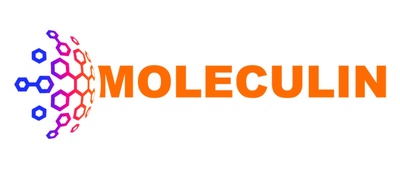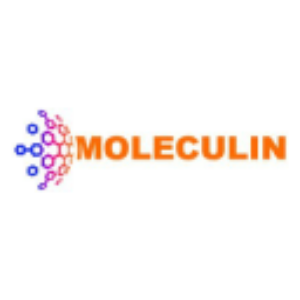Moleculin Announces U.S. Patent Issue Notification for Lipid-Based Delivery Technology for Annamycin
Moleculin Biotech, Inc. announced the receipt of a U.S. Patent for Lipid-Based Delivery Technology for Annamycin, extending through 2040 with potential for further extensions. The drug Annamycin is moving towards a pivotal AML study in 2024, possibly qualifying for accelerated approval. The Company aims to establish a strong patent estate for Annamycin and drive its development forward, with promising results in clinical trials.
The issuance of the U.S. Patent for Lipid-Based Delivery Technology for Annamycin provides composition protection until 2040, with the potential for extension, enhancing the Company's intellectual property portfolio.
Annamycin, the next-generation anthracycline developed by Moleculin, has demonstrated promising results in clinical studies, showing non-cardiotoxic properties and high response rates in AML patients, indicating potential for effective treatment.
The Company's commitment to advancing the development of Annamycin and its potential for treating various indications highlights a strong focus on innovation and addressing unmet medical needs in the field of oncology.
- None.
Insights
Patent, once issued, will provide composition protection through 2040, with potential for additional term extension
Annamycin is advancing towards pivotal AML study in 2024 and may qualify for an accelerated approval pathway
When issued, the patent will provide claims to liposomal Annamycin suspension compositions with a base patent term currently extending until June 2040, subject to extension to account for time required to fulfill regulatory requirements for FDA approval. Moleculin's novel candidate for the treatment of acute myeloid leukemia (AML) and soft tissue sarcoma lung metastases (STS lung mets) uses a unique lipid-based delivery technology. In addition to the expected '634 patent and recently issued '118 patent, Moleculin has additional patent applications related to Annamycin pending in the
Walter Klemp, CEO and Chairman of Moleculin, stated, "We remain committed to establishing a robust patent estate for Annamycin and driving its development forward. In addition to our recently announced composition of matter patent for Annamycin, we believe we are well positioned for the potential partnering discussions which we expect to have in the near future. The issuance of this patent further underscores the importance and proprietary nature of the innovation that makes this next generation anthracycline possible and bolsters our confidence in its potential to address a number of high-value indications where there remains unmet medical need."
Annamycin is the Company's next-generation anthracycline that has been designed to be non-cardiotoxic (unlike currently prescribed anthracyclines) and has shown to be non-cardiotoxic in the 82 subjects treated in multiple studies in the
Disclosure
MD Anderson has an institutional conflict of interest with Moleculin, and this relationship is managed according to an MD Anderson Institutional Conflict of Interest Management and Monitoring Plan.
About Moleculin Biotech, Inc.
Moleculin Biotech, Inc. is a clinical stage pharmaceutical company with a growing pipeline, including Phase 2 clinical programs, for hard-to-treat tumors and viruses. The Company's lead program, Annamycin is a next-generation anthracycline designed to avoid multidrug resistance mechanisms with little to no cardiotoxicity. Annamycin is currently in development for the treatment of relapsed or refractory acute myeloid leukemia (AML) and soft tissue sarcoma (STS) lung metastases.
Additionally, the Company is developing WP1066, an Immune/Transcription Modulator capable of inhibiting p-STAT3 and other oncogenic transcription factors while also stimulating a natural immune response, targeting brain tumors, pancreatic and other cancers, and WP1220, an analog to WP1066, for the topical treatment of cutaneous T-cell lymphoma. Moleculin is also engaged in the development of a portfolio of antimetabolites, including WP1122 for the potential treatment of viruses, as well as cancer indications including brain tumors, pancreatic and other cancers.
For more information about the Company, please visit www.moleculin.com and connect on Twitter, LinkedIn and Facebook.
Forward-Looking Statements
Some of the statements in this release are forward-looking statements within the meaning of Section 27A of the Securities Act of 1933, Section 21E of the Securities Exchange Act of 1934 and the Private Securities Litigation Reform Act of 1995, which involve risks and uncertainties. Forward-looking statements in this press release include, without limitation, the expected issuance of the patent discussed above. Although Moleculin believes that the expectations reflected in such forward-looking statements are reasonable as of the date made, expectations may prove to have been materially different from the results expressed or implied by such forward-looking statements. Moleculin has attempted to identify forward-looking statements by terminology including 'believes,' 'estimates,' 'anticipates,' 'expects,' 'plans,' 'projects,' 'intends,' 'potential,' 'may,' 'could,' 'might,' 'will,' 'should,' 'approximately' or other words that convey uncertainty of future events or outcomes to identify these forward-looking statements. These statements are only predictions and involve known and unknown risks, uncertainties, and other factors, including those discussed under Item 1A. "Risk Factors" in our most recently filed Form 10-K filed with the Securities and Exchange Commission (SEC) and updated from time to time in our Form 10-Q filings and in our other public filings with the SEC. Any forward-looking statements contained in this release speak only as of its date. We undertake no obligation to update any forward-looking statements contained in this release to reflect events or circumstances occurring after its date or to reflect the occurrence of unanticipated events.
Investor Contact:
JTC Team, LLC
Jenene Thomas
(833) 475-8247
MBRX@jtcir.com
![]() View original content to download multimedia:https://www.prnewswire.com/news-releases/moleculin-announces-us-patent-issue-notification-for-lipid-based-delivery-technology-for-annamycin-302140466.html
View original content to download multimedia:https://www.prnewswire.com/news-releases/moleculin-announces-us-patent-issue-notification-for-lipid-based-delivery-technology-for-annamycin-302140466.html
SOURCE Moleculin Biotech, Inc.
FAQ
What is the title of the U.S. Patent issued to Moleculin related to Annamycin?
What is the base patent term for the U.S. Patent related to Annamycin?
What are the key properties of Annamycin developed by Moleculin for AML treatment?
What are the recent clinical trial results for Annamycin in Europe for AML treatment?








